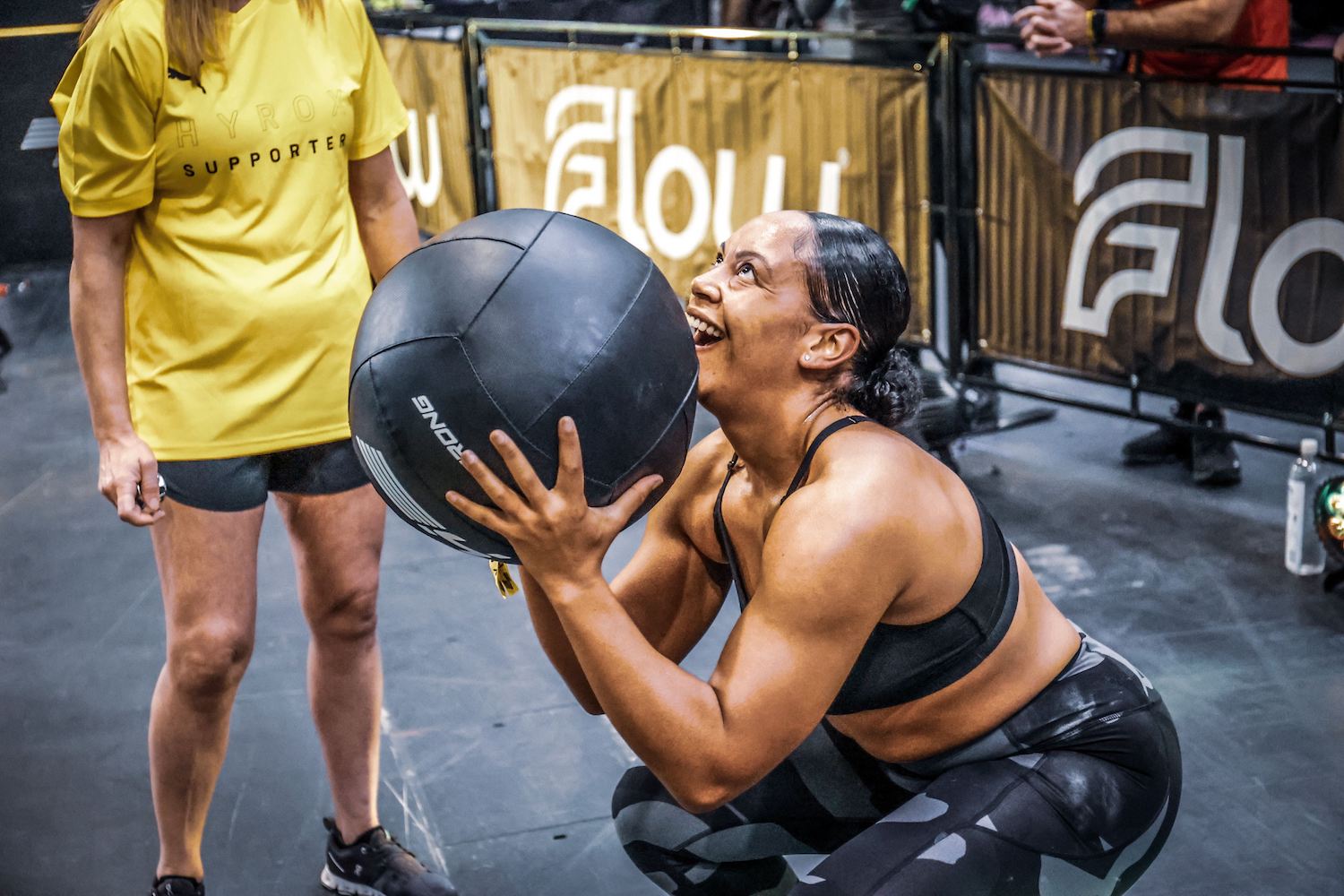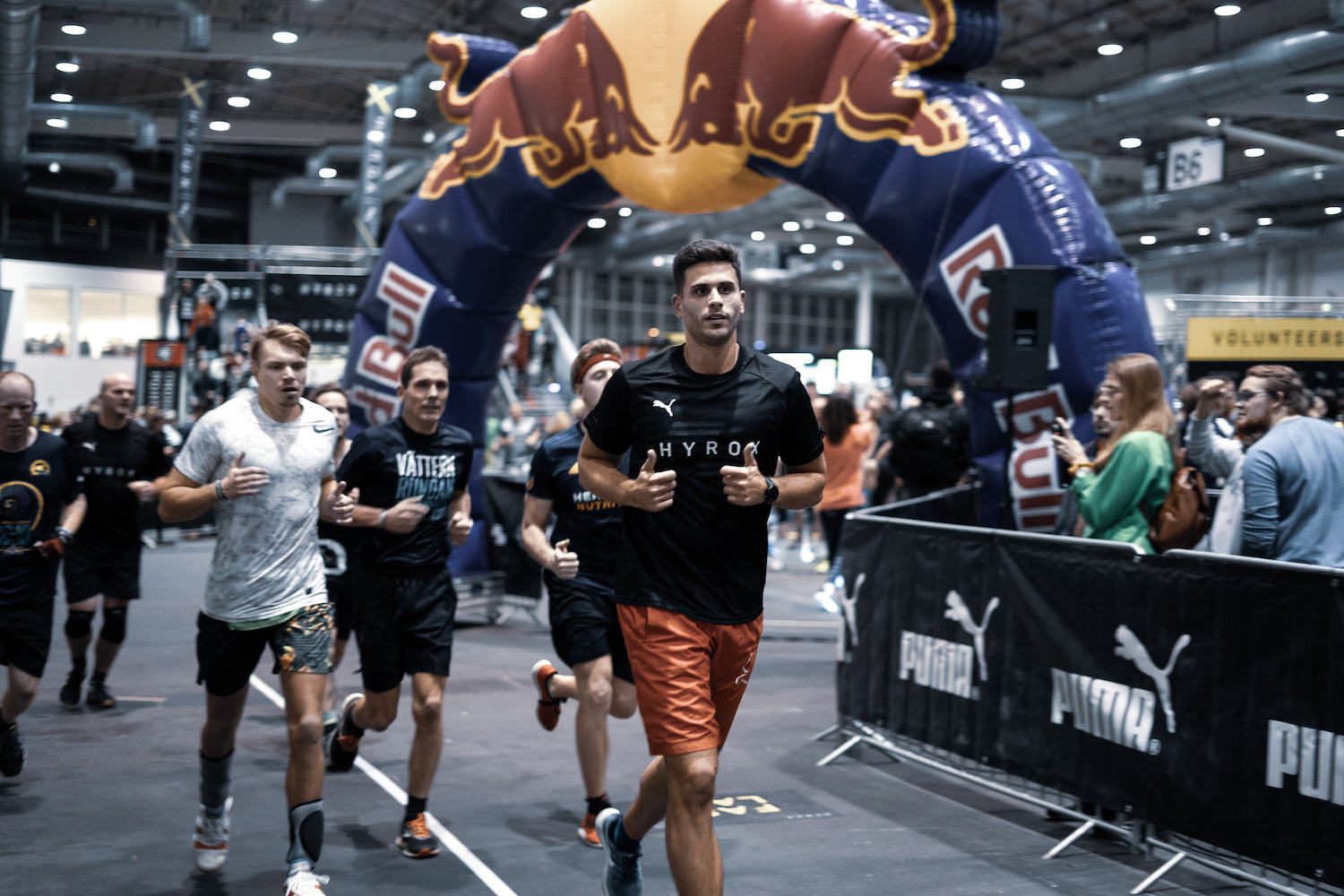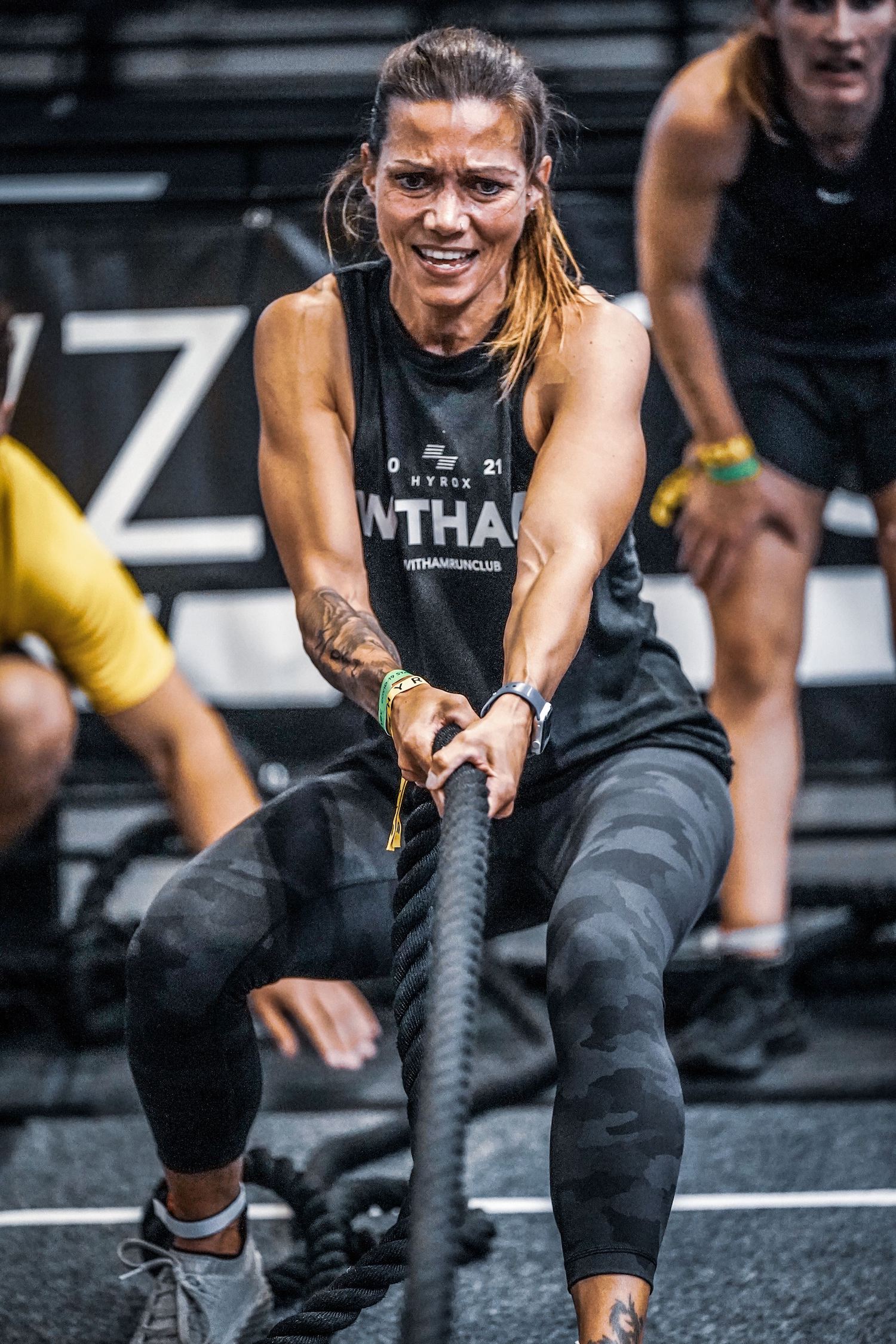What is Hyrox and is it useful for triathletes?
Hyrox is a fitness phenomenon that's gaining popularity fast. But what is it? And is it beneficial to triathletes?

Hyrox is a new global fitness phenomenon that’s sweeping around the world, but what exactly is it and is it useful for triathletes?
Come the off-season and it’s time to mix up your training. Typically triathletes will use the pool, home pain cave and gym more, using the controlled environments to target quality training without having to deal with dark evenings and bad weather.
But there is another way of using this training to mix things up. Hyrox is a trend fast increasing in popularity, but what is it – and is it of any benefit to triathetes? With the help of Tri Training Harder’s head coach Philip Hatzis, we find out…
What is Hyrox?
Hyrox refers to itself as the world series of fitness racing and leans on the idea of fitness as a sport.
The brand’s website reads: “Hyrox is the first mass participation event that gives everyday gym-goers their own race to train for. It bridges the gap between traditional endurance events with functional fitness.”
So what do Hyrox events actually look like? Well, they all share the same format, which is a 1km run followed by a functional movement, repeated eight times. See a list of the eight different exercises below, which will each be preceded by a 1km run:
- 1,000m ski erg
- 50m sled push
- 50m sled pull
- 80m burpee broad jumps
- 1,000m rowing
- 200m farmers carry
- 100m sandbag lunges
- 75 or 100 x wall balls
There are also four levels you can race under. These include ‘Open’, which gives everyone a chance to try their hand at Hyrox, Individual Pro, which is aimed at more experienced racers and involves heavier weights, and then Doubles and Relay Teams, which gives you the opportunity to team up with others and split the load of the exercises.
All competitors wear timing chips and their finishing times are added to a global rankings system, allowing you to see how you fared against others in your age groups.
There’s also Hyrox Youngstars, for athletes aged 8-15 making it an activity which a family can all train and compete in together.
Since its launch, more and more events have been added to the roster and you can now choose to compete in cities across the world with 21 listed at the moment on four continents.
All events take place during a triathlete’s traditional off-season, running from November to May and culminating in the Hyrox World Championships.
What are the benefits of Hyrox for triathletes?

The benefits of incorporating cross-training for a triathlete are well documented, so if Hyrox is something that gets you doing strength and conditioning (S&C) work, then it’s definitely a benefit.
Equally, it’s a multidirectional sport, so it’ll challenge triathletes more than their normal linear movement. As a coach, I’m a huge fan of athletes taking their fitness and doing more than just triathlons.
We work for hours to develop ourselves into fitness ‘machines’ and it seems a shame ‘only’ to do a triathlon when we have a head start in many different activities thanks to the general fitness that triathlon gives us!
Hyrox may offer that additional challenge that some triathletes need and we can undoubtedly gain something out of intensive exercises.
If you can hold form throughout the 90 minutes in all the different exercises and when running, you will see an improvement in your racing, especially as most people don’t finish triathlons as picture-perfect as they would like.
What risks does Hyrox pose for triathletes?

There are common risks for doing different sports around picking up an injury and additional stress from this style of racing and strength work.
Though it’s beneficial to work multi-directionally, it poses risks for triathletes who are less capable of lateral movements due to the nature of their sport.
In reality, the real threat comes for people having a heavy season, then doing something like this in their off-season and still expecting to be super competitive.
If you’re training simultaneously for triathlon and Hyrox, it’s worth remembering that you’ll be making a sacrifice in both of them.
Triathlon is quite a time-intensive sport given the need to perform well at three disciplines, and Hyrox is running (catered for in training) with eight other sports or stations – it’ll be hard to be great at all of them!
You’ll need to phase your training through the day and the week for each of them. Though there is a crossover, it won’t be a complete overlap. This can mean a lot more fatigue, especially given the intensive nature of the event, where everything is essentially full gas.
Biomechanical form and proper function are critical in triathlon, so ensure you do the exercises correctly and don’t rush them.
Racing through S&C work is usually when form is sacrificed for speed, and then you may end up picking up injuries really quickly.
Make sure you don’t sacrifice your form in the exercises, especially if you’re doing them when tired or still learning how to do them.
How to incorporate Hyrox into your triathlon training

The critical question is to ask yourself what you want to get from doing Hyrox.
If this is some fun cross-training, then as long as you are happy to sit on a rowing machine or ski erg and do all the required exercises safely, this doesn’t need to take up any more time. But where does triathlon fit in your schedule if you want to be competitive at Hyrox?
Newer athletes may find that a more significant proportion of their time is spent in the general or cross-training areas of preparation because they have so much to learn.
Generally, being stronger will be helpful, but more experienced or performance-orientated athletes would do well to make sure they frame it as a fun competition.
Choosing this sort of activity away from the primary racing season would ensure that triathlon is the focus for the critical times of the year and you’re having fun for the rest of it.
But given the Hyrox season takes place in winter, it’s important to ensure you still have a season break. So all the above points are made without sacrificing this – especially if you’ve had a hard triathlon season!
If you want to do both, use the Hyrox training as part of your strength work or tack some of the exercises in as part of your other sessions.
For example, include some ski erg or rowing machine work before a swim making sure you are all warmed up for the swim and doing that with tired arms. Alternatively, use lunges or burpees as an activation before your runs, or even use them in the middle of your runs or bike sessions to make sure you are appropriately activated.
There can be several benefits and crossovers to incorporating exercises like that through runs and bikes. However, just make sure you phase it well. If you want to do an easy recovery ride, and then you jump off the bike and do some loaded burpees or lunges, you will end up negating the original purpose of the session.
So is it worth trying Hyrox?

On balance, there are two perspectives to consider. As a newer athlete, doing more general fitness will be a great way to build into your triathlon season, it‘ll have limited negative and some key benefits. Vitally, it’ll help you build awareness of doing more strength work.
Equally, this could be an excellent way into the gym for athletes who should incorporate more strength work but don’t.
For more experienced athletes, there are benefits to having a change from triathlon and doing something different. Still, the risk is that your competitive spirit overpowers you and you don’t end up having any real off-season, or you underperform in both and do not work on your triathlon-specific performance enhancers.
If you’re new to triathlon, or an experienced age-grouper, make sure you hold good form throughout to get the most out of Hyrox as a cross-training session.
If you want to get fast at triathlon, it would always be worth training for your sport. A proper strength and conditioning programme working on your strengths and weaknesses will be the fastest way to improve, especially the higher up the performance ladder you are.
Top image credit: Hyrox




